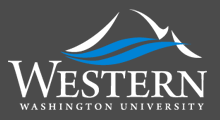Keywords
Food production, food cultivation
Document Type
Speech
Abstract
Environmental Education should exist to address injustices in our world, be they social or environmental since the two rarely exist isolated from each other. Environmental Education should exist to unite people, transcend social boundaries, and bring about solutions to shared socioecological challenges. One of the most pertinent socioecological challenges we face today revolves around our food system. We now have an opportunity to change our education system to reflect the current reality of our food system and reimagine a future where all communities have control over the cultivation, production, and distribution of the food on their plates all while treading lightly on our planet.By understanding the food sovereignty movement and its effects individual and community identity, we can reimagine our approach towards food systems education that focuses on identity, compassion, democratic education, and empowerment. We can use food sovereignty movements as examples of how positive change happens.
Your lunch experience today was meant to mimic the food realities of people living right here in Skagit County and many across the country. While some people have a choice of what goes on their plates and into their bodies, others do not. While some have the purchasing power to eat a well-balanced nutritious meal that will fuel their body and mind through the day, others do not. While some have the resources to pick up the organic apples and broccoli grown in their communities, others do not. Some of you might be feeling a little slighted, maybe even frustrated. Others might be feeling guilty about your privilege of sitting at a certain table. For everyone, I encourage you to embrace the experience, knowing that it won’t last forever.
Genre/Form
personal narratives
Recommended Citation
Young, A. (2018). Eating is an act of learning; Eating is an act of love. Summit to Salish Sea: Inquiries and Essays, 3(1). Retrieved from https://cedar.wwu.edu/s2ss/vol3/iss1/4
Subjects - Topical (LCSH)
Environmental education; Food sovereignty; Indigenous people; Poor--United States; Food security--Economic aspects--United States; Agriculture--Economic aspects--United States
Rights
Copying of this document in whole or in part is allowable only for scholarly purposes. It is understood, however, that any copying or publication of this document for commercial purposes, or for financial gain, shall not be allowed without the author’s written permission.
Geographic Coverage
North Cascades National Park (Wash.)
Language
English
Format
application/pdf
Type
Text
Included in
Civic and Community Engagement Commons, Curriculum and Instruction Commons, Educational Methods Commons, Educational Sociology Commons, Environmental Studies Commons, Place and Environment Commons, Theory and Philosophy Commons

